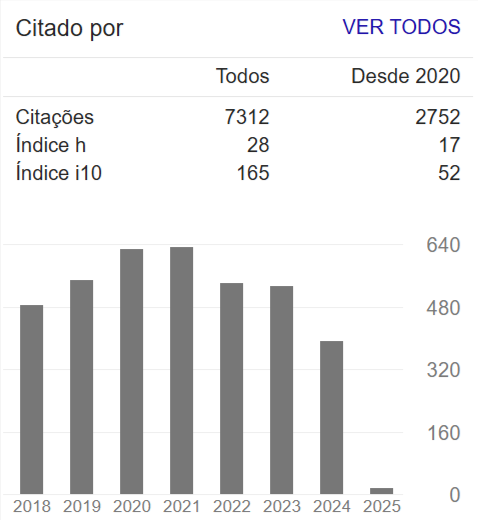Use of support vector machine for prediction of groundwater levels
Abstract
This work had a purpose to use a regression technique with Support Vector Machine (SVM) to predict daily water-table levels of groundwater in a monitoring well on unconfined aquifer in the west of Rio Grande do Sul. For that, was used time series of static water level and rainfall, comprising daily monitoring period of 1468 observations. The aim was to create an autoregressive model capable of estimate groundwater levels from the time series for horizons of 120 and 180 days. At the test step of the model, the adjustment of prediction realized presented statistical coefficients (R²) of 0,89 and Nash-Sutcliffe coefficients (CNS) of 0,90, attesting the predictive quality of the methodology used. After the analysis of the residues, it was verified greater efficiency for the prediction of discharge events, mainly, for high static water levels. The use of present methodology showed high accuracy to estimate the groundwater level using only the static water level and rainfall variables, demonstrating great applicability in groundwater hydrology field.

















